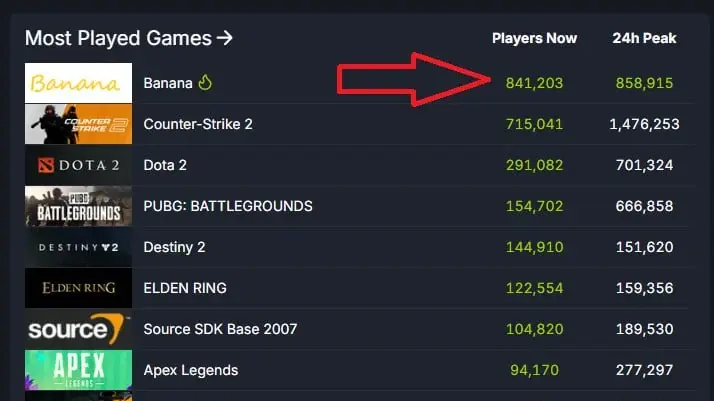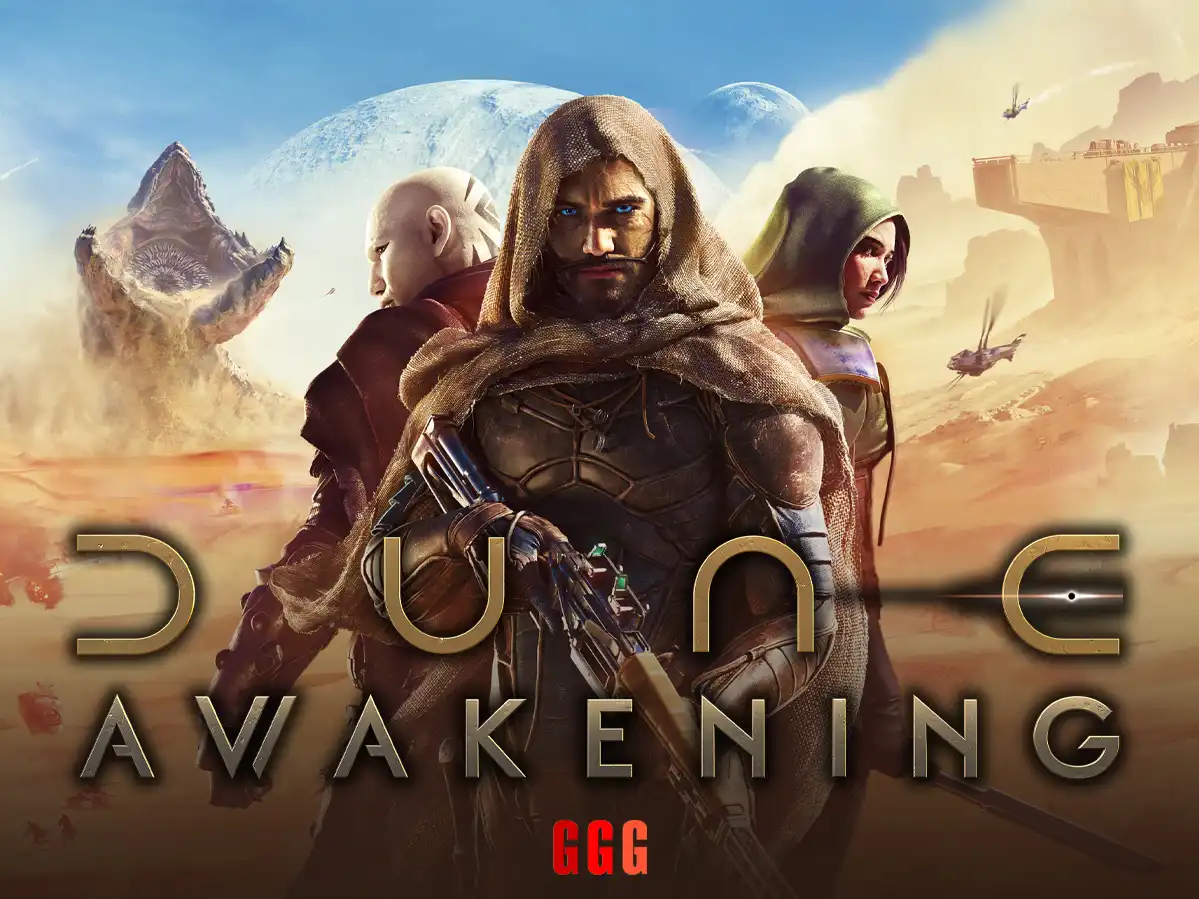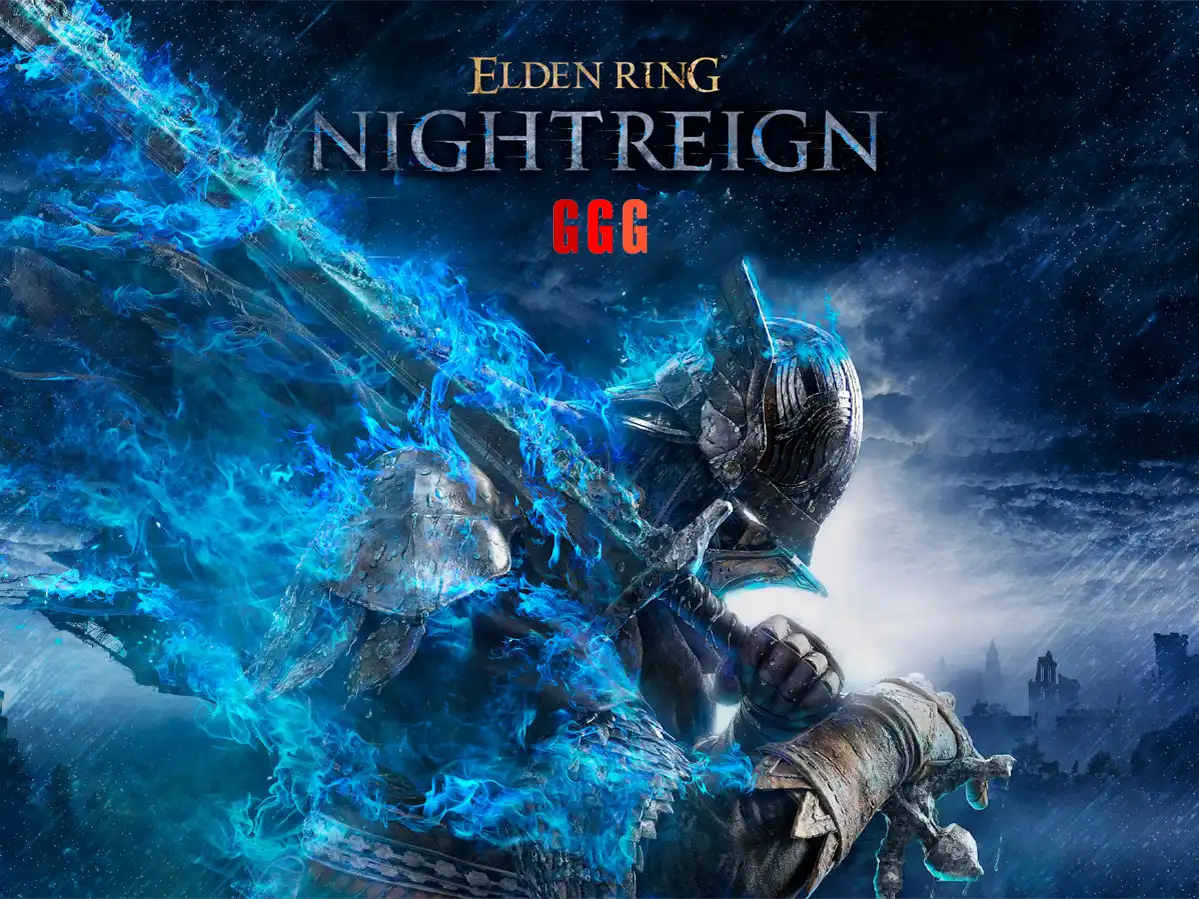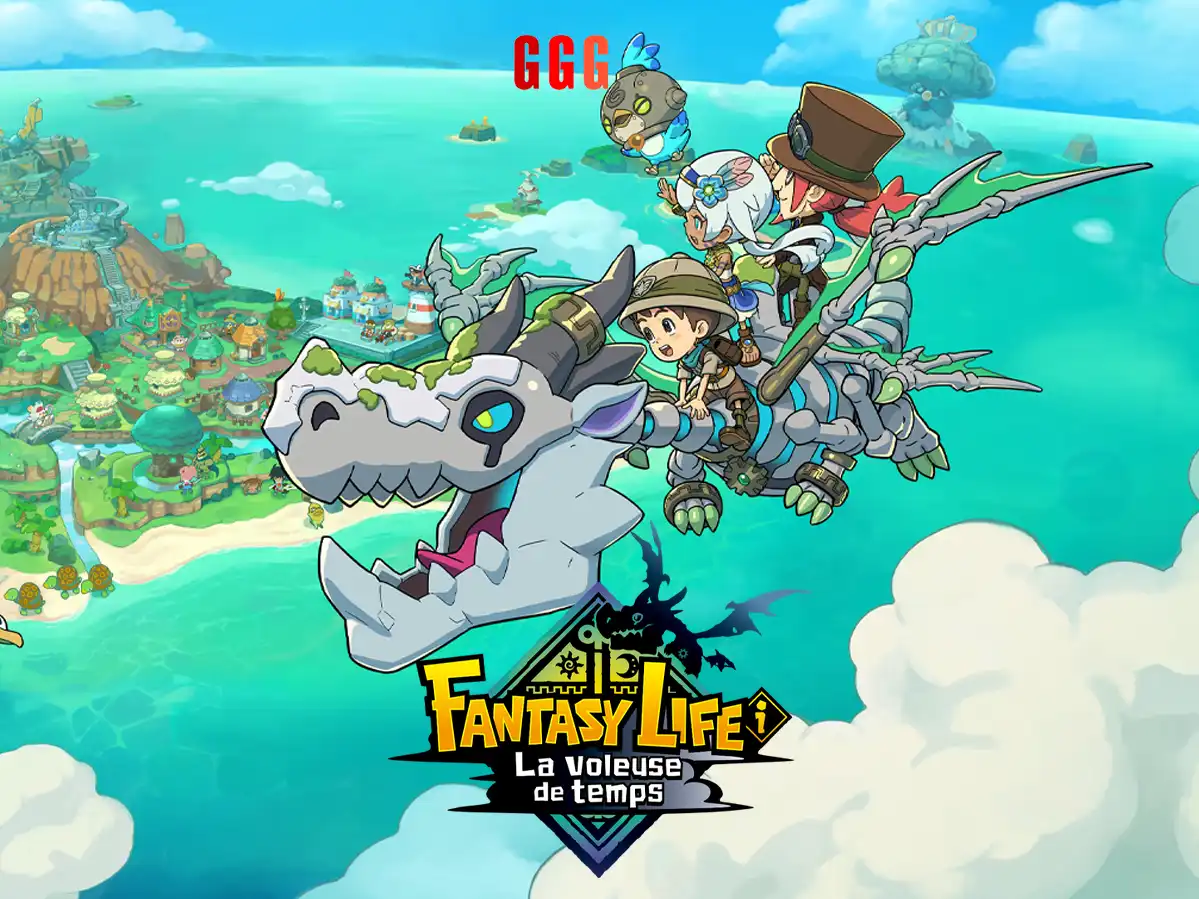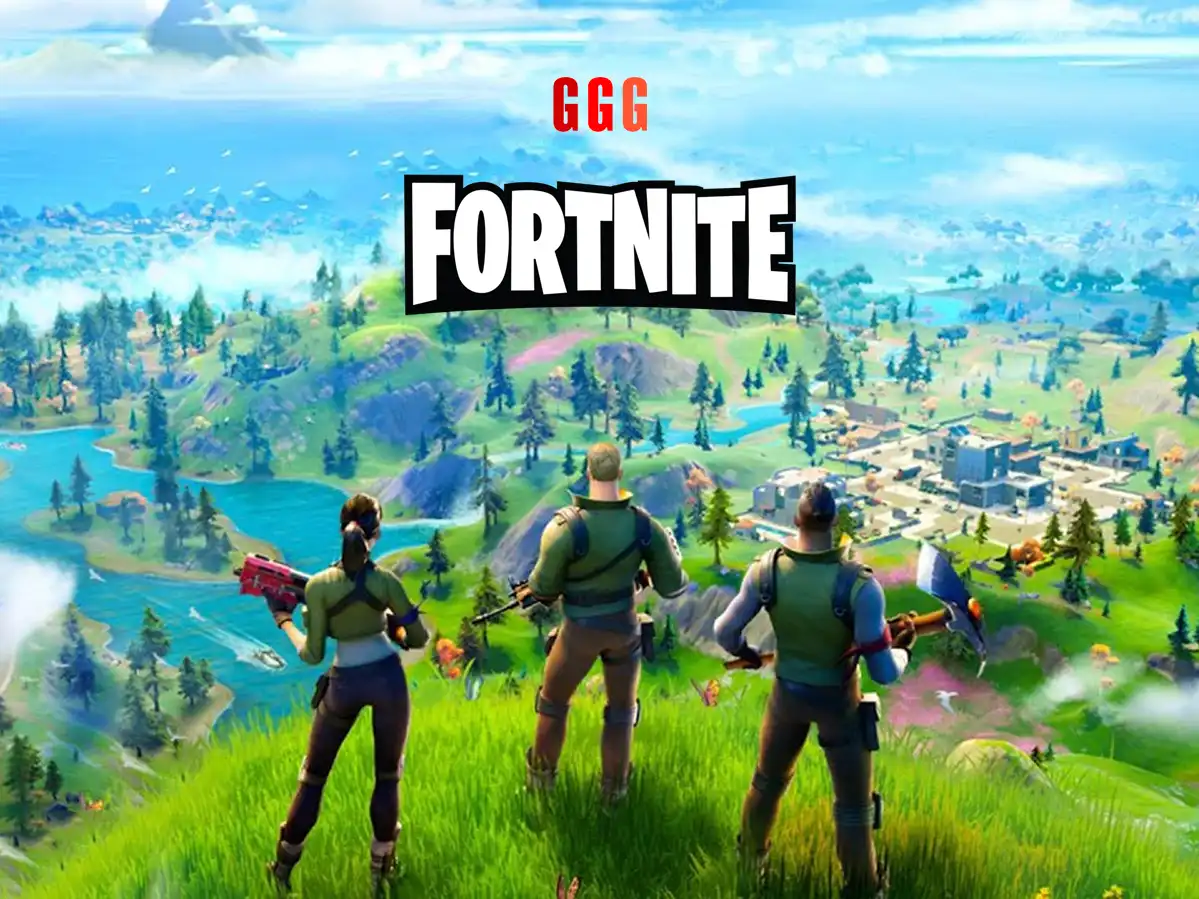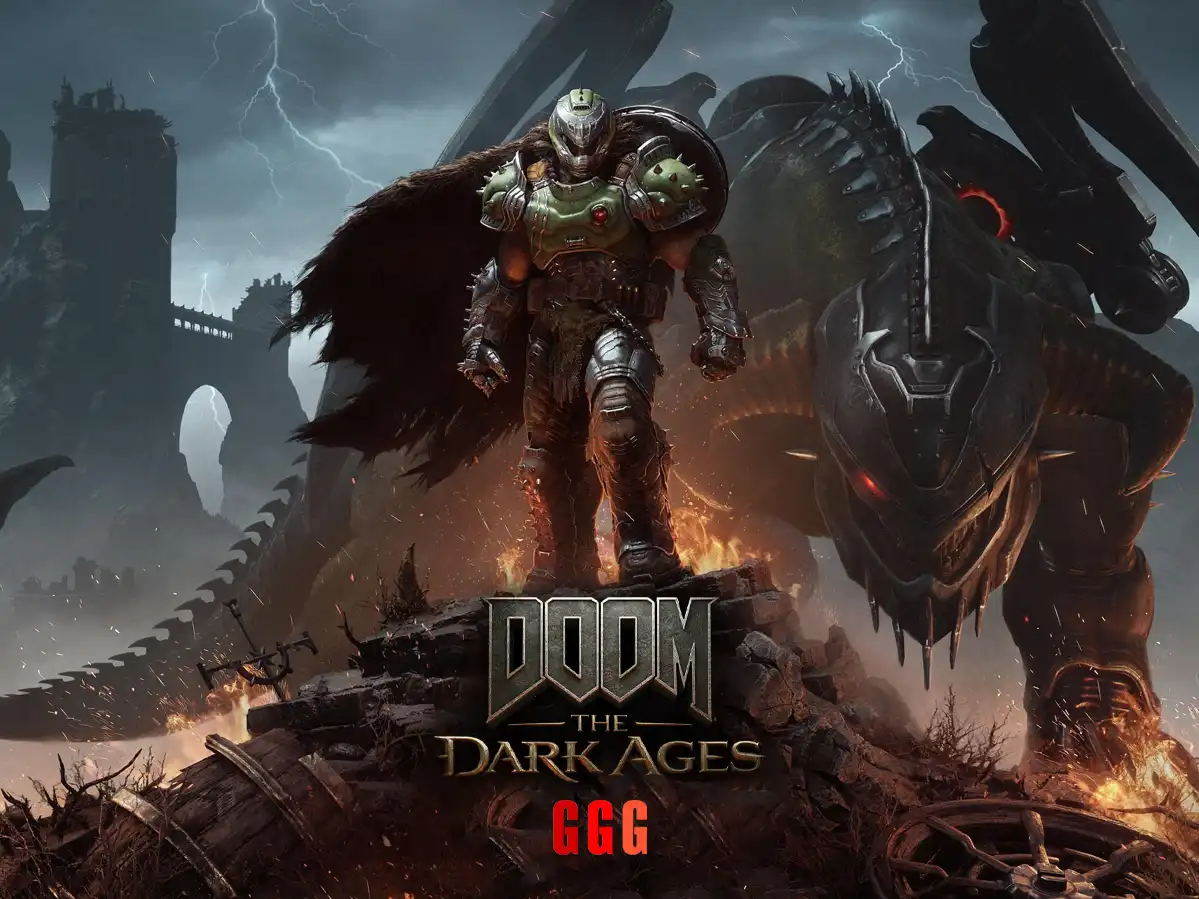The Phenomenon of “Banana game” on Steam: A Deep Dive
In the ever-evolving landscape of video games, the emergence of "Banana game" on Steam has captivated the gaming community and beyond. This seemingly simple clicker game has managed to outshine industry giants, drawing unprecedented attention and a massive player base. Developed using Unity by aaladin66 and his small team, "Banana" epitomizes how simplicity, combined with clever market mechanics, can lead to a viral sensation. This article delves into the mechanics, the economic implications, and the cultural impact of this unique game.
Stay with GGGAMER to know more about this game.
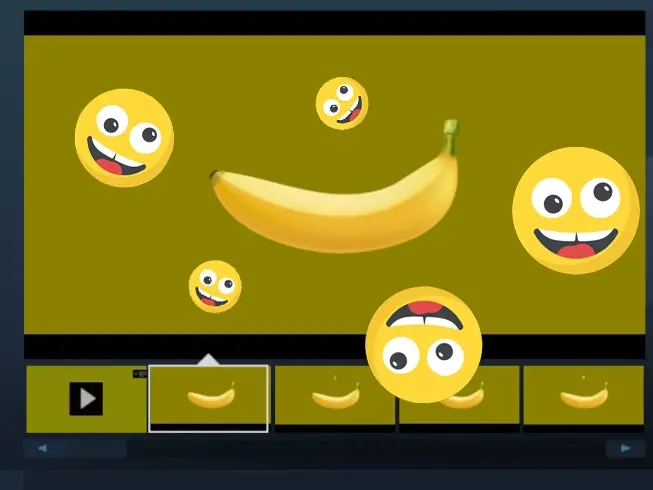
Banana Game Mechanics and Design
"Banana" is a clicker game, a genre known for its straightforward gameplay where players repeatedly click an object to accumulate points. In this case, players click on a banana, and each click increases their score. While this mechanic is elementary, it taps into the addictive nature of incremental progress that clicker games are known for.
The game’s interface is minimalistic, focusing solely on the banana and the score counter. This simplicity is deceptive, as it masks the underlying complexity of the game’s integration with the Steam Community Market.
Economic Dynamics
One of the key factors behind "Banana’s" success is its innovative use of Steam's Community Market. The game features a drop system where players can earn in-game items through consistent play. Specifically, players can obtain one item every three hours of gameplay, provided they have played for at least one minute during that period. Additionally, rare items drop every 18 hours under similar conditions.
These items can be traded or sold on Steam's marketplace, creating a virtual economy within the game. The allure of earning real money by selling these digital items has attracted a significant number of players. For instance, a "Special Golden Banana" was recently sold for a staggering $1,378.58, highlighting the financial potential embedded within the game (SteamDB) (Game World Observer).
Player Engagement and Growth
"Banana’s" player base skyrocketed soon after its release. The game reached over 220,000 concurrent players at its peak, surpassing established titles like "Apex Legends" and "GTA V" (SteamDB) (Game World Observer). This surge in popularity can be attributed to the game’s accessible mechanics, combined with the potential for monetary gain through item trading.
The game's growth was organic, primarily driven by word-of-mouth and social media. Streamers and content creators on platforms like Twitch and YouTube also played a significant role in popularizing the game. Their live sessions and videos showcasing the game’s mechanics and the thrill of earning rare items further fueled the hype.
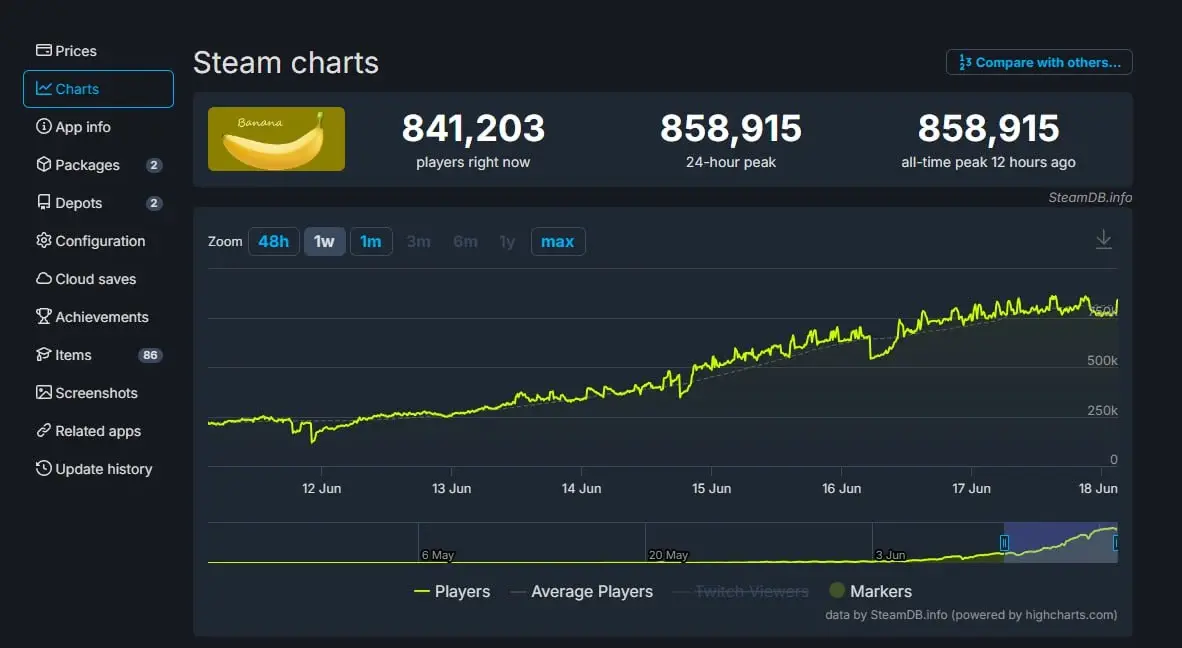
Community and Cultural Impact
"Banana" has not only impacted the gaming community but has also sparked conversations about the nature of modern gaming economies. The game’s success underscores the growing trend of integrating real-world financial elements into virtual environments. This trend raises questions about the future of gaming, particularly regarding the balance between gameplay and economic incentives.
Moreover, the game's success has inspired discussions about the accessibility and inclusivity of video games. "Banana" proves that games do not need to be complex or graphically intensive to be successful. Its minimalistic design and straightforward gameplay have made it accessible to a wide range of players, including those who may not typically engage with video games.
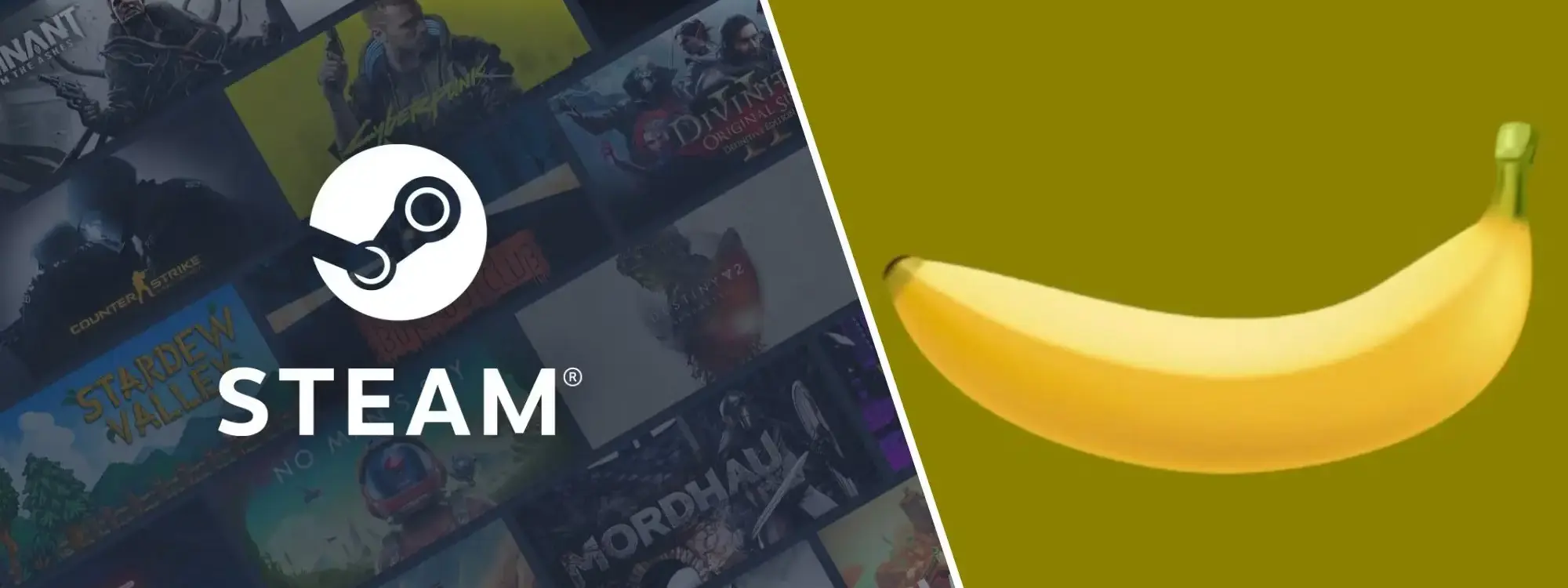
What challenge does banana game create for players?
Despite its success, "Banana" has faced its share of challenges and criticisms. Some players have expressed concerns about the game's reliance on market dynamics, arguing that it prioritizes financial gain over traditional gameplay. This perspective suggests that the game’s success is driven more by speculative trading than by genuine player engagement.
Additionally, there are concerns about the potential for market manipulation and the creation of artificial scarcity within the game. As items become more valuable, there is a risk that players or external actors could exploit the system for profit, undermining the integrity of the game.
The Future of "Banana" and Similar Games
Looking ahead, "Banana" is likely to influence future game development, particularly in the realm of clicker and idle games. Its success highlights the potential for simple, addictive mechanics combined with innovative economic models. Developers may seek to replicate this formula, integrating virtual economies into their games to attract and retain players.
However, it is essential for developers to strike a balance between gameplay and economic incentives. While the financial aspects of "Banana" have undoubtedly contributed to its success, the core gameplay must remain engaging and enjoyable to ensure long-term player retention.
Conclusion
"Banana" on Steam represents a fascinating case study in modern game design and economics. Its meteoric rise to popularity showcases the power of simplicity, combined with the allure of real-world financial rewards. As the gaming industry continues to evolve, "Banana" serves as a reminder that innovation can come from the most unexpected places. Whether through groundbreaking graphics or clever market integration, the future of gaming remains bright and full of potential.
